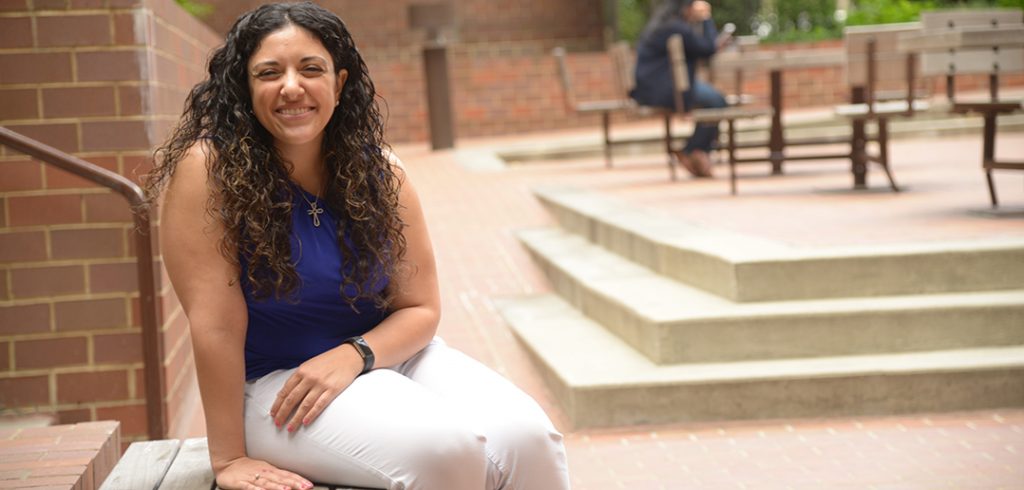This past summer the Orthodox Christian Studies Center received an anonymous gift of $60,000 to create a one-year fellowship for a researcher specializing in Coptic Christianity with a focus on women within the Coptic tradition.
The center selected Donna Rizk, Ph.D., one of a handful of Coptic women to specialize in theology and history in the United States. Rizk will spend the year at Fordham conducting research that compares women’s roles in the Coptic and Armenian traditions, both of which fall within the area of Oriental Orthodoxy. She will also help the center organize events around the Oriental [Orthodox] Churches.
“The Oriental church is technically different than the Orthodox church, but definitely within the purview of the center,” said George E. Demacopoulos, the Fr. John Meyendorff & Patterson Family Chair of Orthodox Christian Studies and co-director, Orthodox Christian Studies Center. “This is precisely the kind of research focus that the center supports, and it is also testimony to the kind of ecumenical and bridge-building work that is central to Fordham’s mission.”
Demacopoulos said that, in addition to being one of the few female Coptic Christian theologians, Rizk is also “likely one of the only Coptic women who has attended an Orthodox seminary,” and her research reflects her own role within the church. She was raised in the Coptic tradition and is marrying into the Armenian tradition. It has afforded her the opportunity to examine women’s roles in the two churches, and within the liturgy in particular.
“If you walk into an Armenian church, liturgically it’s often led by women through the readings and in the choir,” she said. “From an Orthodox perspective, the fact that you see a woman at the podium and hear women in the choir makes a big difference, so my research looks at that difference from a psychologic and anthropologic perspective.”
Rizk attended a Greek Orthodox seminary, where the tradition doesn’t allow women to lead at the altar or sing in the choir and where “women are just not valued or visible.” It’s within this liturgical framework that Rizk plans to do her research.
She said that it’s tempting to let her research interests veer beyond the church walls, particularly when it comes to the Coptic tradition, which is profoundly influenced by ancient Egyptian culture.
“Many parts of the Middle East don’t value the academic aspect of what I do,” she said. “As far as the Coptic Church right now in Egypt, the fear I have with my research is that it is facing a constant opposition toward women.”
As an example, she said she wrote an informal blog a few years ago questioning an Orthodox stance of denying women communion during their monthly cycles, and it went viral.
“It’s uncomfortable to even speak about because it’s so personal,” she said. “I made the argument that the rule is theologically incorrect and that it was a cultural practice, and asked why the church is making rules on it.”
The post’s popularity led to some public pressure on the synod to change the rule, but it ardently opposed a change, she said.
““They’re still holding on to a tradition, but it’s emphasis is against women and not men.”
Rizk said working on Orthodoxy in the 21st century has its challenges, and that her research will also draw from both modern and ancient society.
“I gather from doctrine and practices of the church when need be, but society has its values, that we can learn from, too,” she said. “Extremism exists in all forms of religions, faiths and beliefs, whether Orthodox or atheism, but extremism is difficult to deal with when trying to implement theological change.”

